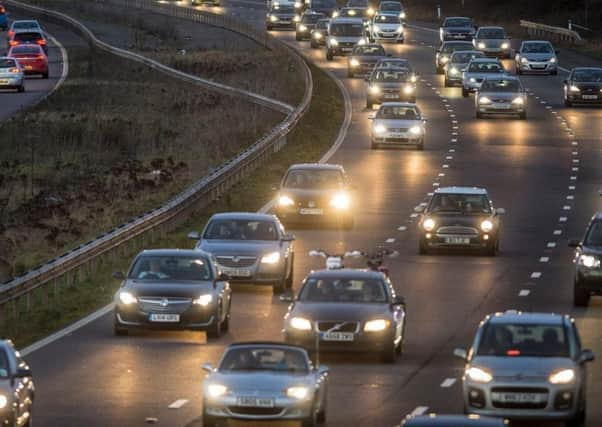Are diesel cars facing their last gasp?


Picture this for a moment if you will. Every morning your automated car drives you to work. It drops you off and drives back home on its own.
Imagine that – no more worrying about whether or not you’ll find somewhere to park. Even just a decade ago this seemed like the stuff of science fiction, but not any more.
Advertisement
Hide AdAdvertisement
Hide AdThe UK’s biggest car manufacturer, Jaguar Land Rover has already been testing driverless cars on public roads and in his November Budget speech, the Chancellor Philip Hammond gave electric and driverless cars a £500m boost as he laid out a plan for Britain’s roads of the future, with red tape being slashed to allow tech firms to test autonomous vehicles by 2021.
However, this impending revolution on the roads appears to spell bad news for diesel cars and as such has profound implications for the British car manufacturing industry.
A new study published this week by experts at Birmingham’s Aston University predicts that diesel cars could account for just 15 per cent of the UK market by 2025, down from a high of 50 per cent just a few years ago.
The research comes as Britain’s booming car sales – which boosted the UK’s post-financial crash economy – appear to have peaked. Latest figures from the Society of Motor Manufacturers and Traders (SMMT) show that sales of new diesel cars fell by just over 17 per cent last year as higher taxes and pollution fears hit demand.
Advertisement
Hide AdAdvertisement
Hide AdAutomotive expert Professor David Bailey says diesel’s “slow death” was being driven by “environmental pressures and consumer confusion”, and he is urging the Government to take action.
“The time is right for the government to take the initiative and offer up scrappage benefits to those who are prepared to ditch their diesels and switch to electric cars.”
It’s all a far cry from 2001 when the then Chancellor Gordon Brown introduced lower vehicle tax for diesel cars, on the grounds that they were less polluting.
At the time there was some sense in this.
Diesel vehicles are, generally speaking, more fuel-efficient than petrol models and produce less CO2 - one of the main gases associated with climate change.
Advertisement
Hide AdAdvertisement
Hide AdHowever, in recent years the focus has switched to urban air quality and the realisation that emissions from diesel engines, notably nitrogen oxides (NOx), are significant contributors to pollution in cities.
The backlash against diesel was partly triggered by the Volkswagen pollution scandal in 2015 when it emerged that many cars, which had passed official tests in the laboratory, were producing much higher levels of NOx when used on the road.
The motor industry has repeatedly said the latest generation of diesel vehicles are much cleaner than their predecessors, but this message appears to be falling on deaf ears.
There is frustration, too, at the anti-diesel rhetoric from the government.
Advertisement
Hide AdAdvertisement
Hide AdAll this coincides with a big push to create “clean air zones” in British towns and cities which has led to renewed calls to tackle nitrogen dioxide pollution. In Leeds, council chiefs have unveiled plans to create a clean air zone after it was named last year as one of 29 local authorities whose roads breached legal pollution levels.
Dirty air doesn’t directly kill people but it’s estimated in the UK to contribute to the shortening of the lives of around 40,000 people a year, and is linked to health problems from childhood illnesses to heart disease and even dementia.
If diesel is to survive, industry bosses will need to convince Government ministers that it can play a role in helping to meet climate change targets. If it doesn’t then it’s difficult to see how diesel cars will be part of the long-term motoring landscape in this country.